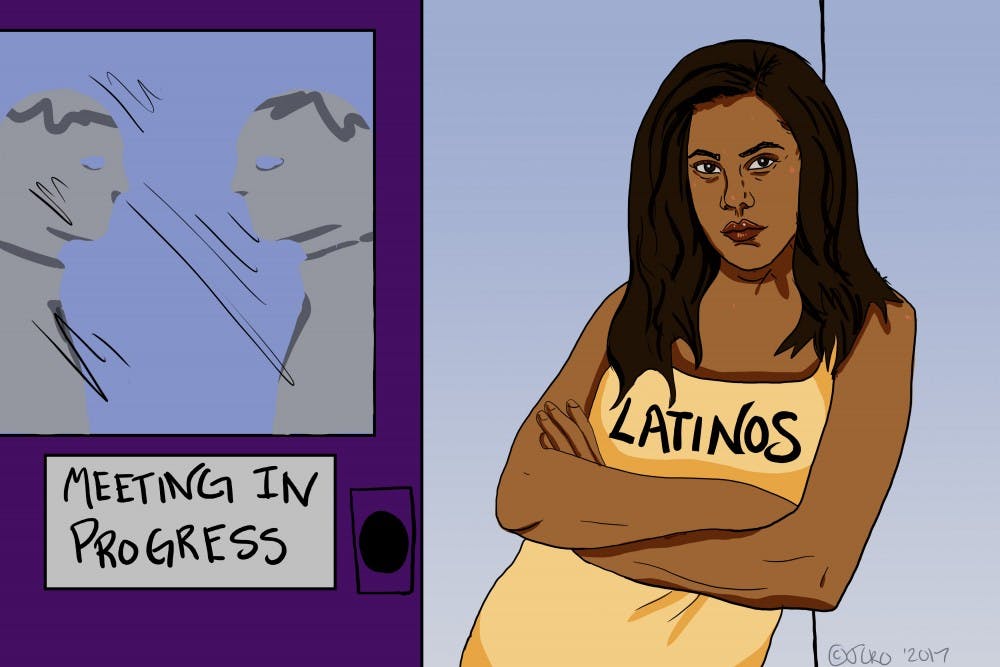Latino culture in Phoenix might be closer to getting the recognition it deserves.
Recent developments in Phoenix city government are suggesting that there may soon be a plan for a new Latino cultural center. A $1.4 million bond was originally scheduled to fund the now-defunct Museo Chicano, and using that money for a Latino cultural center would be a great step in acknowledging Latino culture, which often gets overlooked.
There are plenty of cultures to recognize in Phoenix, but not all receive the recognition consistent with their presence in the community.
The city has made efforts in the past to recognize particular cultures through institutions like the Irish Cultural Center and the Chinese Cultural Center that represent the cultures of smaller demographics within Phoenix. Those groups pale in comparison to Phoenix-area Latinos and Hispanics, who make up over 40 percent of the population.
Despite constituting a near-majority in Phoenix, there is very little recognition of Hispanic and Latino culture.
The Arizona Latino Arts & Culture Center (ALAC) is the only established bastion of Hispanic or Latino culture in Phoenix, and it is not even recognized on Phoenix Public Library's Culture Pass or anywhere in VisitPhoenix's Arts and Culture directory. Even on the website of the Arizona Office of Tourism, the ALAC is nearly impossible to find without knowing exactly where to look.
A penchant for highlighting other cultures combined with a glaring need for recognition of Latino culture suggests that a new center for Latino culture is overdue.
"There is not much recognition of Hispanics in Phoenix beyond César Chávez," said Cynthia Tompkins, an ASU Spanish professor. "There is very little institutionalized recognition, but a new cultural center would be a good way to bring all of the different Latino and Hispanic niches together."
Latinos and Hispanics are not the only ones slighted by not having a cultural center. University students and faculty are also put at a disadvantage.
"There are over 100 Latin American faculty here at ASU, and a cultural center would provide a place for civic engagement," Tompkins said. "A lack of a cultural center in Phoenix inhibits work towards receiving grants here at the University."
As the concept of a new Latino cultural center gains steam in government, students and citizens can make their voices heard before a concrete plan is put into place.
Town halls will be held on April 20 and 22 in Phoenix, and the data from these meetings will be presented to the city in late June to begin the process of creating a plan for a new cultural center.
Other cities like Chicago and Albuquerque have made efforts to recognize their own Latino cultures, and Phoenix should be the next to take a step in formally celebrating Latino culture.
"Phoenix's Latino heritage must be celebrated. Our ties with Mexico and status as a border state reinforce that Latino heritage should be lauded," Tompkins said.
These new efforts to construct a Latino cultural center are tardy, but that makes them no less important. With such a meaningful and essential Latino presence in Phoenix, there must be no further waiting for a Latino cultural center.
Reach the columnist at jbaker22@asu.edu or follow @jonahpbaker on Twitter.
Editor’s note: The opinions presented in this column are the author’s and do not imply any endorsement from The State Press or its editors.
Want to join the conversation? Send an email to opiniondesk.statepress@gmail.com. Keep letters under 500 words and be sure to include your university affiliation. Anonymity will not be granted.
Like The State Press on Facebook and follow @statepress on Twitter.




